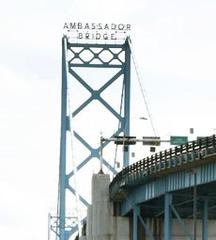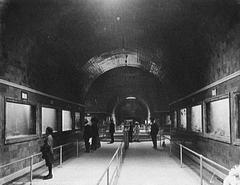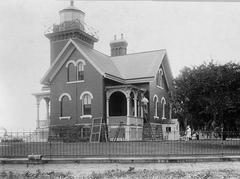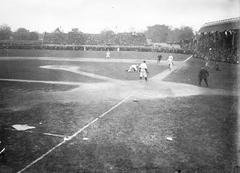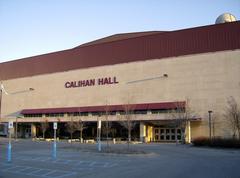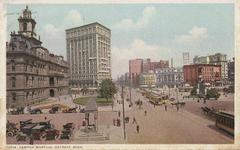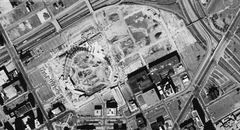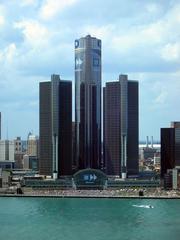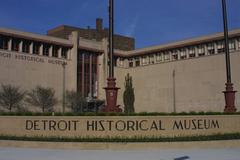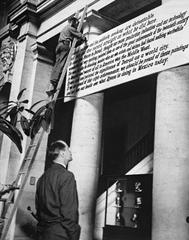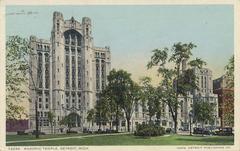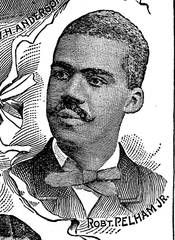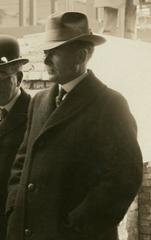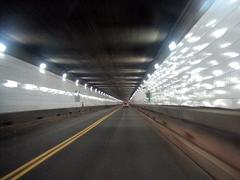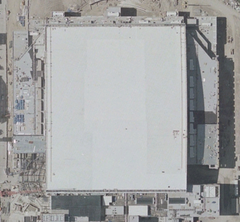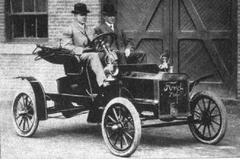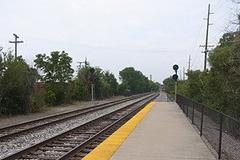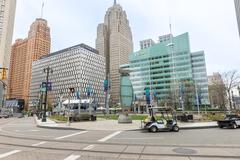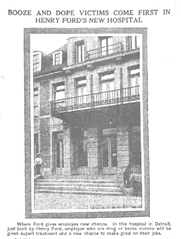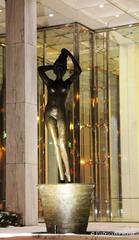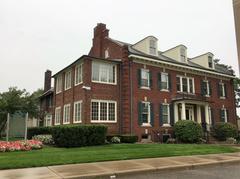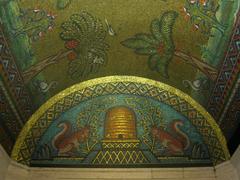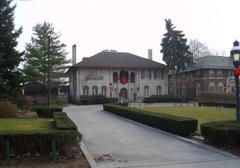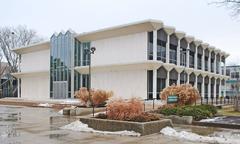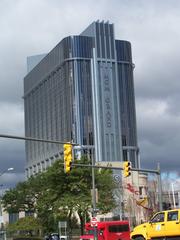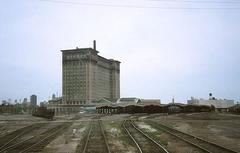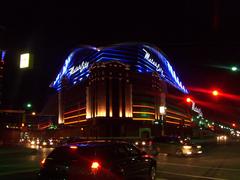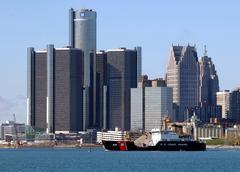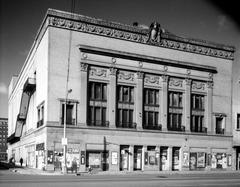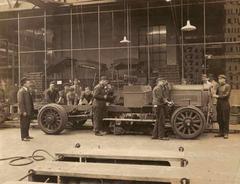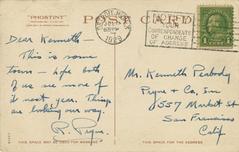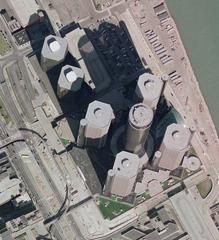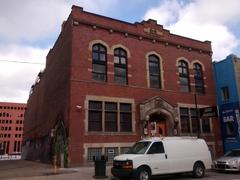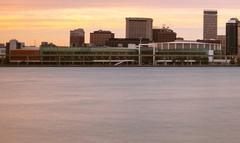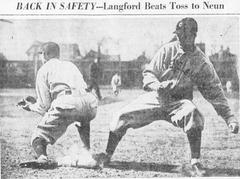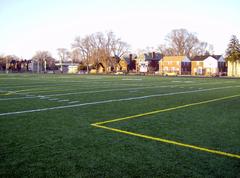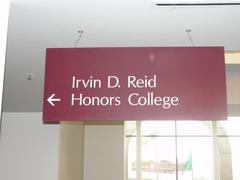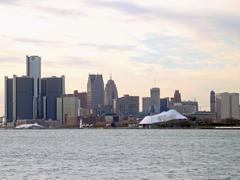The Whittier Detroit: Visiting Hours, Tickets, and Historical Significance Guide
Date: 04/07/2025
Introduction
Set against the scenic backdrop of Detroit’s riverfront in the historic Gold Coast district, The Whittier Detroit is an enduring symbol of the city’s architectural brilliance and cultural vitality. Erected during the prosperous Roaring Twenties, The Whittier fuses Italian Renaissance Revival design—crafted by renowned architect Charles N. Agree—with a colorful history that mirrors Detroit’s industrial growth and evolving urban landscape. Initially conceived as a luxurious apartment hotel for Detroit’s elite and notable figures, The Whittier’s grand façades and ballrooms have hosted decades of society events, performances, and community gatherings.
Today, The Whittier functions as both a residential complex and a venue for special events, drawing history buffs, architectural enthusiasts, and visitors eager to experience a piece of Detroit’s storied past. This comprehensive guide details The Whittier’s historical context, practical visiting information, accessibility, nearby attractions, photography tips, and recommendations for a memorable visit.
For additional resources, visit the Detroit Historical Society, Historic Detroit, and official event listings.
Table of Contents
- Introduction
- Historical Overview
- Visiting The Whittier Detroit: Practical Information
- Frequently Asked Questions (FAQ)
- Additional Resources
- Conclusion and Visitor Recommendations
Historical Overview
Origins and Development
Constructed in two phases—an initial 10-story building in 1923, followed by a 15-story tower in 1926—The Whittier emerged as a response to Detroit’s explosive industrial expansion and the city’s growing affluent population. Its riverfront location offered both luxury and convenience, swiftly establishing The Whittier as a symbol of modern living during the 1920s (Detroit Historical Society).
Architectural Significance
Designed by Charles N. Agree, The Whittier exemplifies Italian Renaissance Revival style with features such as ornate terra cotta detailing, arched windows, and elegant brick-and-limestone façades. Technological innovations included steel framing, slab foundations for marshy soil, and fireproof construction. Interiors boasted marble floors, crystal chandeliers, and grand communal spaces (Detroit City Historic Report, PDF).
Notable Residents and Events
The Whittier’s guest list included luminaries like Al Capone and numerous celebrities, socialites, and business leaders. Its ballrooms were central to Detroit’s social scene, hosting Prohibition-era gatherings, civic events, and artistic performances. Over time, the building adapted to urban trends, converting some hotel rooms to luxury apartments.
Decline, Preservation, and Contemporary Role
Following mid-20th-century economic shifts, The Whittier experienced decline but was protected with its 1985 listing on the National Register of Historic Places (National Register of Historic Places - Whittier Detroit). Recent restoration and adaptive reuse projects have transformed parts of the complex into senior housing and continue to preserve its historic character.
Today, The Whittier stands as a vibrant residential community and event space, a testament to Detroit’s resilience and commitment to its architectural legacy.
Visiting The Whittier Detroit: Practical Information
Visiting Hours
- Tours and Viewing: By appointment only. Office hours for scheduling are Monday, Wednesday, and Friday from 11:00 AM to 5:00 PM.
- Events: Access to event spaces is by reservation or ticketed event only.
- General Public Access: The exterior and gardens may be viewed from public areas along the riverfront; interior access is restricted except during special events or scheduled tours (Whittier Event Spaces).
Tickets and Tours
- General Admission: No ticket is required to view the exterior or gardens.
- Guided Tours: Occasional tours are offered via historic and architectural organizations; tickets (if required) can be purchased through event organizers. Advance booking is strongly recommended for all tours and events.
Accessibility
- The Whittier strives for accessibility, with elevators and ramps in public areas during events and tours.
- Some areas of uneven flooring and minor elevation changes exist; guests needing special accommodations should contact the venue in advance.
- The surrounding Detroit Riverwalk is wheelchair accessible.
Travel and Parking
- Address: 425 Burns Drive, Detroit, MI 48214
- Parking: Ample on-site parking and valet service are available during events; street and public lot parking is available nearby.
- Public Transit: Limited; rideshare or private transportation is recommended.
Photography Tips
- The Whittier’s ornate façades, classical gardens, and riverfront location offer excellent photo opportunities, especially during golden hour.
- Respect private property and event restrictions when photographing the building or grounds.
Nearby Attractions
- Detroit Riverwalk: A scenic walking and biking path with parks and public art (Detroit Riverwalk Official Site).
- Belle Isle Park: A popular island park with gardens, museums, and beaches.
- Indian Village: Historic neighborhood with early 20th-century mansions.
- Downtown Landmarks: Guardian Building, Fox Theatre, and more (AAA Detroit Guide).
Frequently Asked Questions (FAQ)
Q: Can I tour the inside of The Whittier anytime?
A: Interior tours are by appointment or special event only. Check with the venue or local organizations for current opportunities.
Q: Are tickets required to visit The Whittier?
A: No admission ticket is needed for exterior or garden viewing; some events or tours may require tickets.
Q: Is The Whittier accessible for people with disabilities?
A: The venue is working to accommodate all guests, though some historic features remain. Contact the venue for specific needs.
Q: Where can I park?
A: On-site parking and valet services are available for events; additional street parking is nearby.
Q: Can I host a private event at The Whittier?
A: Yes, The Whittier offers multiple event spaces; contact them directly to inquire about availability and bookings.
Additional Resources
- National Register of Historic Places - Whittier Detroit
- Detroit Historical Society
- Historic Detroit
- Whittier Event Spaces
- Detroit Riverwalk Official Site
- AAA Detroit Guide
Conclusion and Visitor Recommendations
The Whittier Detroit is more than an architectural landmark—it is a living symbol of the city’s cultural richness and dynamic evolution. From its grand beginnings as a luxury apartment hotel to its current role as a cherished historic venue and residential complex, The Whittier encapsulates Detroit’s journey of growth, resilience, and renewal.
Plan your visit by booking tours in advance, exploring the exterior and gardens, and combining your trip with other nearby attractions such as Belle Isle Park and the Detroit Riverwalk. For up-to-date information on events and tours, visit the official Whittier Event Spaces website or call 313-356-6260.
Download the Audiala app for guided tours, follow us on social media for the latest updates, and immerse yourself in the stories that define Detroit’s identity. Discover more through trusted sources such as the Detroit Historical Society and Historic Detroit.
Optimized images and interactive maps are available on the official website to enhance your planning experience.
References
- National Register of Historic Places - Whittier Detroit
- Detroit Historical Society
- Historic Detroit
- Whittier Event Spaces
